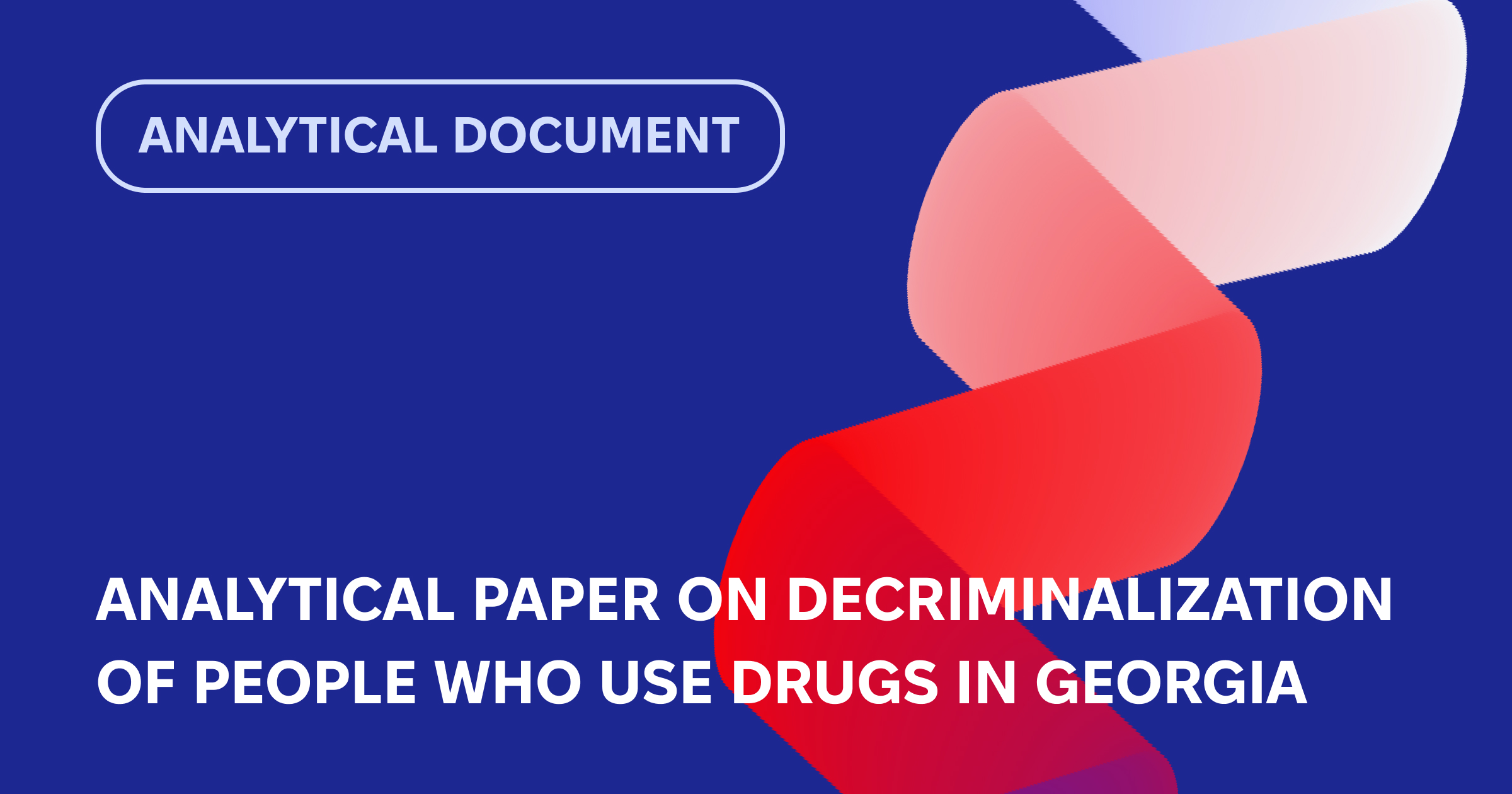The purpose of this study is to provide information on the problems related to the criminalization of drug use in Georgia and to propose recommendations for decriminalization. Let us look at some key aspects of this paper.
Analyzing the legal framework and barriers: The paper analyzes the laws and institutional barriers that affect the status and quality of life of drug users in Georgia. It points out the harsh penalties stipulated by Georgian law for people who use drugs and calls for a review of these norms.
Impact on access to health care: The paper draws attention to how criminalization of drug use affects access to health care. It emphasizes the need to reduce barriers and improve conditions for drug users.
Balance in Drug Policy: The paper highlights the need for a balance between criminal measures and humane methods of addressing drug use. It highlights that recent changes in Georgia’s legislation, while reducing penalties for cannabis and marijuana use, do not address the problems associated with injecting drugs.
The path to a more humane drug policy: The document emphasizes the importance of treating drug dependence as a public health problem rather than a crime. It calls for proportionate penalties and more humane approaches to supporting people who use drugs.
Changes in drug policy since the 2000s: The paper also notes the changes made in Georgia in an attempt to improve drug policy and the legal status of drug users, but emphasizes that problems still remain.
Author of the analytical paper: Kakha Kvashilava






